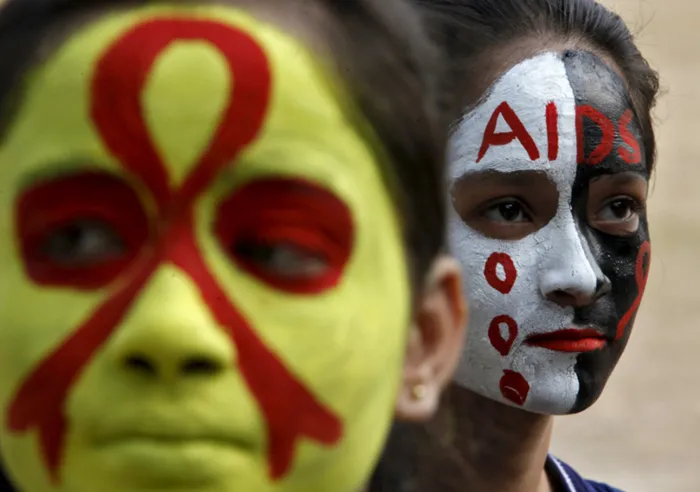Rising to the challenges of Aids

Picture: Supplied – A critically important lesson from Covid-19 that we need to incorporate into our Aids response is that we are all inter-connected and our actions influence the risk of infection in others, the writers say.
By Salim S Abdool Karim and Quarraisha Abdool Karim
In sub-Saharan Africa, every two minutes an adolescent girl or young woman was newly infected with HIV in 2021 alone. One young woman. Every two minutes. Think about that for a moment. The In Danger report by UNAIDS should raise alarm bells for all of us.
The Covid-19 pandemic has slowed down global progress with HIV prevention and treatment in the past two-and-a-half years leading to significant impact on the control of the disease and the achievement of the 95-95-9 5 strategy which calls for 95 percent of people living with HIV to know their HIV status, 95 percent of people who know their status to be on antiretrovirals, and 95 percent of all patients receiving antiretroviral therapy to be virally suppressed.
While much progress has been made over the past four decades since the first HIV cases were reported, not everyone is benefiting equally from the scientific advancements that have taken place in HIV research in recent years. Notably, this progress should not be used to justify inequalities that still persist in HIV testing and treatment, even more so for the introduction of new technologies. The upcoming 2nd International Conference on Public Health in Africa (CPHIA 2022) December 13-15 in Kigali, Rwanda, will shine the spotlight on this connection and the urgent need to focus on HIV response together with tuberculosis (TB), malaria and other neglected tropical diseases (NTDs).
Reducing stigma and discrimination remains an ongoing task with much still to do. Increasing utilisation of healthcare services for both prevention and treatment is critical in the global response to HIV. By combining resources and strengths to support vulnerable communities at a higher risk of exposure to HIV – such as migrants and prisoners, people who use drugs, LGBTI people, sex workers and young women – we can work together to address the range of challenges they face and in so doing, ensure they have timely access to essential HIV care and support.
Identifying and involving these vulnerable communities lies at the heart of an effective action plan. These groups bring invaluable knowledge of the specific obstacles they face, and the potential and sustainable solutions to affect real long-term change. Partnerships between community-based organisations and academic institutions can provide the evidence to inform policy, programmes and services to better respond to the unique realities and needs of communities, particularly the most marginalised. Such partnerships are fundamental to creating lasting health change in Africa.
From the Covid-19 response, we have learned the importance of supporting scientific innovation and promoting cutting-edge medical technologies. We also saw how important it was to make them available to people in all countries throughout the world in an affordable and timely manner.
African-led initiatives, such as CPHIA 2022, provide for researchers and public health leaders not only the opportunity to share knowledge and strengthen scientific collaboration, but also how Africa needs to be better prepared for the next pandemic to avoid the vaccine inequity of Covid-19. Africa is innovating to build stronger primary healthcare systems and create a conducive environment capable of responding to diseases – such as HIV – that continue to disproportionately affect vulnerable communities.
The political declaration adopted by United Nations member states in 2021 to end inequality and get on track to end HIV/Aids as a public health threat by 2030 is a clear indication that there is genuine eagerness – and action – toward reducing new HIV infections. Reaching this goal will require an integrated and holistic approach by all players to create mutually beneficial partnerships; those that seek to combine the different strengths of diverse partners to convert big ideas into bigger, impactful outcomes.
Therefore, it is important to learn from the Covid-19 pandemic and leverage cross-border and cross-sectoral collaborations with speed and accuracy when these challenges threaten our lives and economic well-being.
We owe it to the next generation to do better. We owe it to them to break the cycle of economic, social, cultural and legal inequalities to place the world on the path to an Aids-free generation. The goal is ambitious but achievable and vital in ending Aids as a global health threat.
Finally, we have learnt a critically important lesson from Covid-19 that we need to incorporate into our Aids response – that we are inter-connected and our actions influence the risk of infection in others. We must therefore act together for our common good.
As we commemorated the 34th anniversary of World Aids Day a few days ago under the theme “Equalise”, we joined hands with other public health leaders in every sphere and at every level in committing ourselves to providing actionable solutions to the barriers that keep us from making progress and helping to reach the global 2030 targets.
Professor Salim S Abdool Karim is Director for the Centre for the Aids Programme of Research in SA (Caprisa) and Vice President of the International Science Council and Professor Quarraisha Abdool Karim is the Associate Scientific Director of Caprisa and President of the World Academy of Sciences.